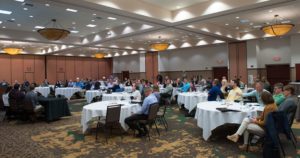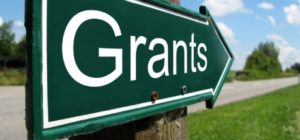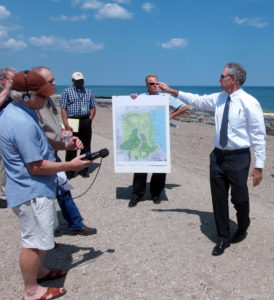A crowd of nearly 100 people attended the Remediation and Redevelopment Program’s recent conference, Brownfields for Local Government Officials, held May 10, 2018 in Stevens Point.

The one-day conference spanned a host of land recycling issues, but did not include the technical topics often reserved for other events. Throughout the day, participants heard from developers, local government colleagues, and others about the tools and strategies to capitalize on underused, or even abandoned, properties.
The day began with an overview of the DNR’s Brownfields Program, including explanations of the financial aid and technical assistance that staff can provide. Other sessions included panel discussions with program staff (formerly private sector consultants) and with experienced developers familiar with the unique requirements of brownfields redevelopment.
Attendees also heard from local government leaders about devising county-wide redevelopment plans, state-assisted cost recovery mechanisms, and both state and federal brownfields assistance programs, including the Technical Assistance for Brownfields (TAB) program, a joint effort through the EPA and Kansas State University.
Conference presentations can be found in the program’s Training Library.
A similar conference will be held again in 2020.



 Teamwork can transform old, dilapidated industrial and commercial properties into economically and socially beneficial community assets. The DNR’s Remediation and Redevelopment Program is willing and able to be on your local government team. We have experience with thousands of successful revitalization projects, we have grant and loan funding available, and we can help bring other key stakeholders to your table at any stage of the process.
Teamwork can transform old, dilapidated industrial and commercial properties into economically and socially beneficial community assets. The DNR’s Remediation and Redevelopment Program is willing and able to be on your local government team. We have experience with thousands of successful revitalization projects, we have grant and loan funding available, and we can help bring other key stakeholders to your table at any stage of the process.